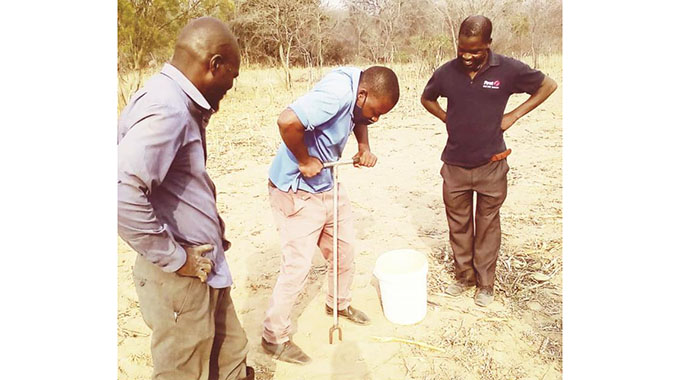4IR: Let’s leverage on niches to close digital divide gap

Ruth Butaumocho
African Agenda
More than 1 000 women from different African countries last year converged at the Birchwood Conference Centre in Johannesburg to discuss how women can be agents of change in achieving peace and security, as well as alleviating poverty in Africa.
The conference touched on a number of issues meant to encourage women to take up spaces in the developmental trajectory.
One of the themes was “Strengthening the Continental African Women’s Movement within the Fourth Industrial Revolution (4IR) towards a New and Value-Based Eco-System.”
Packed in a big hall, women had robust conversation and discussions around 4IR. To some, the topic sounded elitist and somewhat divorced from their daily needs.
Little did many know that by 2020, the majority would need to embrace 4IR wholeheartedly as the world became “virtual” overnight due to the outbreak of the coronavirus pandemic.
Rather than make choices on how they want to communicate, millions of people across the globe now find themselves relying on the internet for most of their communication.
It is no longer a choice.
The 4IR, which involves the fusion of the digital, biological, and physical worlds, as well as utilisation of new technologies among them artificial intelligence, cloud computing, robotics, 3D printing and the use of “big data” has already set the tone on how the world should relate.
A world of opportunities awaits Africa and the world at large as the 4IR, will among other things, encourage economic growth through the expansion of the ICT sector, reinvent labour skills and production, as well as increase the ease of doing business in other sectors.
Clearly, the 4IR presents an array of opportunities, which if harnessed properly could address social and economic challenges in Africa, pushing the continent on a pedestal and become a force to reckon with in wealth creation.
However, the advent of 4IR also presents challenges, which African countries would need to address if they need to achieve a successful digital revolution.
Several African countries would need to further invest in their ICT infrastructure to enhance connectivity, especially in rural areas where the majority of people are based.
Cost of data will also need to be looked at.
According to the 2020 report by the Internet World Stats, internet penetration in Africa stands at 39,3 percent, way below the world’s average which is at 58 percent.
The report states that Kenya is the leading African country on internet usage at 87 percent, while other countries hover between 30 and 50 percent, with Zimbabwe currently at 58 percent on internet penetration.
Although there is gradual growth in internet access in Africa as countries make concerted effort to catch up with the rest of the world, women are vastly under-represented in technology, a development that will affect their involvement and inclusion in the 4IR.
The advent of mobile phones has benefited men more than women because males are likely to have money to buy and upgrade their phones so that they can access internet services.
The male populace also has access to frequent internet cafes and utilise available ICT resources.
Because of the social and economic dynamics where more men than women are in formal employment, men are twice more likely to have access to the internet than women, further widening the gap of internet use between the two sexes.
Lack of resources, poverty, illiteracy, discrimination, cultural restrictions and social status of women are some of the factors that could result in the rise of a second digital divide.
According to Intel’s report, Women and the Web: “on average across the developing world, nearly 25 percent fewer women than men have access to the Internet, and the gender gap soars to nearly 45 percent in regions like sub-Saharan Africa.”
African leaders would need to change the narrative and increase women’s access to the internet to ensure that everyone embraces the fourth industrial revolution at the same speed.
The numerical significance of women in Africa is too large to ignore, hence the need to involve them on the inception of the enhanced digital era.
Becoming technologically savvy is an important skill that women need to help themselves in acquiring other skills, getting jobs, being competitive in the job market and pulling themselves out of poverty.
With e-commerce taking toll globally, women will enhance their entrepreneurship projects through establishing new market links, customers and open new windows of opportunities.
Through ZimTrade, several women have been able to export their products to different countries across the globe.
Because some of the processes required training in marketing, branding and negotiation skills, access and usage of the internet became critical skills.
Globally internet usage for women has indeed become a vehicle for social and economic transformation.
In the absence of ICT, women risk being left behind as agents of change and leaders in a rapidly changing global society.
While there is a growing concern that the fourth industrial revolution, will whittle the labour market as more jobs would be left to automation, the era also presents a coterie of opportunities that women can harness to their advantage.
As the world edges towards the digital era, African governments now need robust policy frameworks that promote the education of girls in science and technology.
Their thrust should also be on promoting female entrepreneurship in new opportunities, such as renewable energy and technology industries.
To make the most of the 4IR, African governments and entrepreneurs now need to recognise new niches for industry and leverage them to ensure sustainable, inclusive growth, and take decisive steps to close the gaps in digital skills, infrastructure, and research and development.








Comments